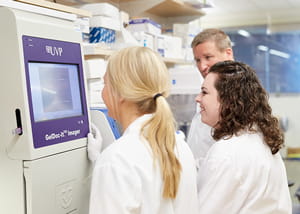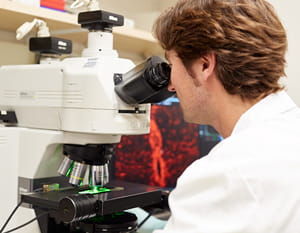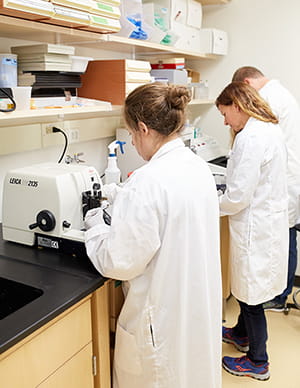Research in Fetal and Placental Therapy
Prenatal treatment has many advantages over routine postnatal care as it may prevent irreversible brain or organ injury, ensure proper fetal growth and development, prevent the loss of the fetus as a result of disease progression or improve outcomes if neonatal surgery is required.
With a number of these conditions such as spinal bifida, congenital diaphragmatic hernia, or twin-to-twin transfusion syndrome, an anatomic problem with the potential to cause further damage may be corrected or mitigated before birth through fetal surgery. Both the Lim lab and Peiro lab study the development of diseases such as spina bifida and congenital diaphragmatic hernia. The correction or mitigation of an anatomic problem via fetal surgery or therapy and the understanding of the mechanisms of disease can work to develop innovative fetal surgical techniques to improve their outcome. Research in this area has already led to the design of effective fetal surgeries that are frequently quite different from the standard approaches that are used after birth.
Members of the Jones lab study the role of the placenta in abnormal pregnancies and fetal development and are developing placental therapies for use during pregnancy. Improving the growth, development and function of the placenta may impact multiple diseases in which the placenta is currently implicated (Fetal Growth Restriction, Pre-eclampsia, Preterm birth, Still birth) and those in which its involvement is being uncovered by our research (Congenital Heart Disease). Achieving normal placental function in these cases will aid in fetal development, newborn survival, and neonatal surgical outcome and may have an impact on the development of metabolic or cardiovascular diseases in later life.






